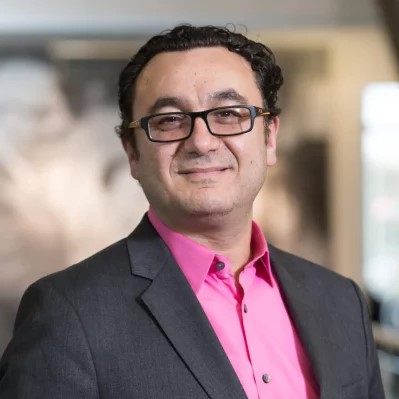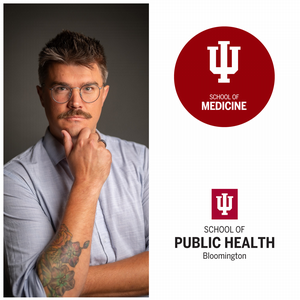For many older adults, stress is a natural part of daily life. But could it contribute to their cognitive decline?
Evan Jordan, Ph.D. in the Department of Health & Wellness Design was recently awarded a National Institutes of Neurological Disorders and Stroke (NINDS) R01 Research Project Grant for $3,787,908 to study—over the course of five years—the effects of the environment on people 65+ who are at risk for developing Alzheimer’s disease and related dementias (ADRD). Participants in the study will be Indiana residents in both urban and rural areas with mild cognitive impairment (MCI).
“Approximately 10 to 15 percent of people with MCI will progress to ADRD within one year, according to the Alzheimer’s Association,” says Dr. Jordan. “We are very interested in this very compressed time period; who progresses and who doesn’t, and in this study link that progression to specific elements of their lived environment.”
The project, entitled “Assessing Urban-Rural Environmental Stress Inequities in ADRD through Ecological Momentary Assessment (AURESIA),” will recruit a total of 600 participants (about half from rural environments; half from urban) who consent to being tracked via a provided smartphone and smartwatch. The participants will make use of the Stress Reports in Variable Environments (STRIVE) app. Built in collaboration with Patrick Shih Ph.D., associate professor of informatics at Luddy School IU Bloomington, the app will record environmental stressors over a two-week period.
“The app even gives them the option of taking a picture of their stressful environment,” says Dr. Jordan. “The idea is between tracking everywhere they go based on their GPS location and relying on them to report their stressors, we can establish in two weeks the usual environment where they live, work and play, then monitor their cognitive state over the next two years.”
Study-provided devices—a smartphone and smartwatch—will ensure that all participants have equal access to technology. These devices will track participants around the clock with their knowledge and consent. Indiana University co-investigators include Stephanie Dickinson, executive director of the biostatistics consulting center; and IU School of Medicine faculty Malaz Boustani, M.D., M.P.H., Frederick Unverzagt, Ph.D., and Paul Dexter, M.D. External co-investigators include Zina Ben Miled, Ph.D. of Purdue University; Erik Nelson, Ph.D. of Brigham Young University; and Mario Schootman, Ph.D. of University of Arkansas for Medical Sciences.

“Over the past two decades, our IU interdisciplinary team has been developing, testing, and implementing innovative care models to reduce the individual, family and societal burden of ADRD,” shares Dr. Boustani. “More recently we have been focusing on reducing the risk of developing ADRD by implementing scalable risk-reduction strategies. This study will help us in enhancing the precision and the inclusivity of our dementia prevention strategies by identifying modifiable environmental risk factors in rural, suburban, and urban communities across the entire state of Indiana.”
Studying urban versus rural settings is crucial to the study, says Dr. Jordan, because environmental stressors can vary widely between the two settings.
“There are very disparate sets of environmental stressors older adults can be exposed to—for example, in an urban dwelling a person may be subjected to noise and air pollution, traffic, and higher level of crime with a denser population,” shares Dr. Jordan.
Rural dwellings come with their own set of unique stressors, such as limited access to healthcare, being sedentary due to longer commutes to access necessities, and feelings of isolation.
“Urban areas often have a lot of parks and recreational opportunities, but rural people—while they may be closer to nature, it often isn’t organized in a way where it is easy to use that green space for recreation,” says Dr. Jordan.
Once the data is collected, investigators hope to identify environmental factors that might contribute to cognitive decline—and provide healthcare recommendations based on their findings.
“For instance, if we can prove that green spaces and nature might be protective of people’s neurocognitive abilities, we could intervene specifically for people with MCI and their healthcare providers to encourage them to spend more time in those environments,” says Dr. Jordan.
For more stories about SPH-B students and faculty making a big difference both locally and worldwide, visit go.iu.edu/48bx.


